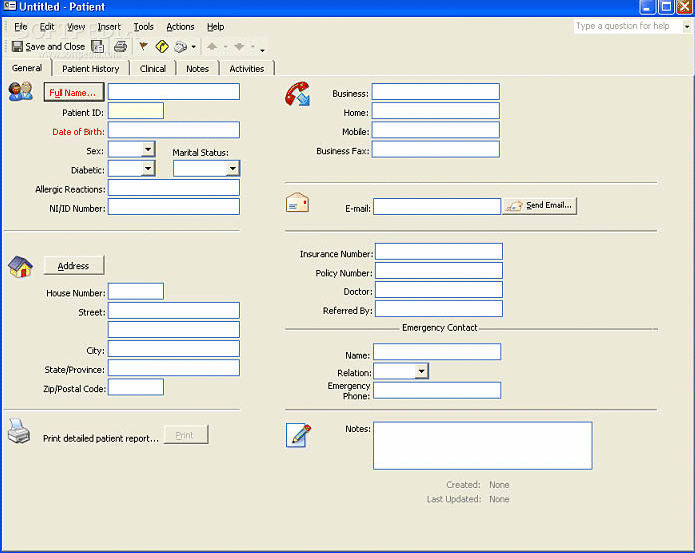
Question 1
Adult sexting is
perfectly legal, as it is the sharing of sexually explicit content between two
consenting adult. But what about teen sexting – should that be legal? If a
16-year-old boy sends a sext to his 16-year-old partner, should that be
considered child pornography? Why or why not?
Teen
sexting is a highly controversial topic. Although many teens are sexually
active, teen sexting should be illegal. Sexting is currently illegal under
federal law. It falls under the creation, distribution, and possession of child
porn and is a felony offense. This is because teenagers
do not have the emotional maturity to sext appropriately. Moreover, taking,
possessing, and posting sexually explicit photographs of teenagers under the
age of 18 is a form of pornograph.
Question 2
If you refer
back to Figure 8.1 on page 228, where would you place adult sexting – a minor
ethical violation, a serious ethical violation, or a very serious ethical
violation? What circumstances – consequences, society’s opinion, likelihood of
effect, time to consequences, relatedness, and reach of result – might move
adult sexting from a minor ethical violation to a serious ethical violation and
then finally on to a very serious ethical violation?
Adult
sexting ethics are situational and subjective. Adult sexting between unmarried
lovers is a serious ethical violation from a Christian standpoint. Conservative
people may believe unmarried couples should abstain from sexual activities
until after marriage. Some liberal people would likely view premarital sexting
activity as only a minor ethical violation. People who are open minded,
however, would not view sexting between unmarried lovers as a serious ethical violation.
Married
couples can ethically engage in sexting activities. However, some conservative people
might think the explicit language commonly used in sexts is a minor ethical
violation.
Typically, the ethical implications of sexting decrease when the
circumstances shift from premarital sexting to marital sexting. The exception
to this statement is when married couples use sexting to engage in extramarital
affairs. Although some adults maintain open marriages, most people agree
extramarital sexting is a very serious ethical violation. The severity of this
violation increases when one spouse engages in explicit extramarital sexting
without the husband or wife’s consent. The severity of the ethical violation
would peak at a married adult engaging in explicit extramarital sexting with a
minor. When a minor becomes involved in adult sexting activities, both ethical
issues and legal issues arise
Question 3
Consider the
whole notion of power being tied to sexting, flirting, and cheating. From a
psychological point of view why might this be true? Do some research into Tiger
Woods's troubles with extra-marital affairs. Could his cheating be tied to his
position of power? Is “power” and the temptations that go with it an excuse for
such behaviour?
Certainly,
one’s position of or craving for power is related to one’s willingness to
engage in sexting activities. People in positions of power feel they are above
the law. Powerful people, such as athletes, celebrities, and politicians, often
think they can engage in scandalous activities without getting caught or
punished. For this same reason, many powerful people engage in extramarital
affairs. These cheaters believe they are not or should not be bound to the
traditional rules of marriage. Tiger Woods is a perfect example of this fact.
Woods has proclaimed adamantly his love for his ex-wife. Nevertheless, Woods
has used his celebrity status and power to engage women in sexually explicit
behaviors and extramarital affairs. According to an article, Woods reportedly
confessed to sleeping with 120 women.

Wood’s
cheating is tied directly to his position of power. First, many of Woods’
mistresses would not have engaged in sexual activities with Woods had he not
been a powerful, wealthy celebrity. Second, Woods would not have had the means
to woo so many mistresses had he not been a wealthy, powerful person. Woods has
admitted to flying women on private jets to meet him in private hotels and
resorts. Finally, although Woods clearly has sexual issues, he likely felt
entitled to his affairs due to his power and status. In fact, Woods believed he
could resolve the cheating issue with his wife by flaunting his wealth and
power. Following the scandal, Woods reportedly told a friend, “I need to run to
Zales and get a Kobe special—a house on a finger”. Woods’ quote references NBA
superstar Kobe Bryant’s extravagant gift to his estranged wife following his
cheating scandal
Another
provocative aspect of the power-cheating connection is the wife’s response to
the scandal. Interestingly, after receiving her expensive gift, Bryant’s wife
chose to stay married to Bryant. Woods was not so lucky. However, even in light
of the gross cheating allegations, Woods’ wife, Elin Nordegren, was hesitant to
leave her husband.
Seemingly,
even the wives of powerful men are willing to bend the marital rules for
philandering husbands in order to continue living luxurious lives. Many wives
chose to ignore the signs of affairs and to live in blissful ignorance.
Unfortunately, this well-known mindset further enables powerful men to engage
in unethical behaviors.
Power
is never an appropriate justification for corrupt actions. Using power to
solicit women or to engage in extramarital affairs is abuse of power. Even
though conducting extramarital affairs and communicating with paramours through
electronic affairs are not illegal activities, these activities are highly
unethical. Thus, people engaging in such behaviors should be removed from their
positions of power.
Question 4
What role can
and should employers play in limiting (perhaps eliminating) sexting in the
workplace? What about employee-to-employee sexting? What about
employee-to-customer sexting? Regarding the latter, what sort of legal
liability does an organization have if an employee sends an unwanted and
unwelcome sext to another employee or to a customer?

If a company’s employer does issue phones and tablets to your employees
there are some steps you can take to help prevent sexting and other unwanted
behavior. First, you can notify your employees that anything they send over employer-issued
devices will be made available to you. You should eliminate any expectation of
privacy that your employees have over the device. You may also want to install
a security application in the device that records keystrokes and data uploads
and notify your workers that you installed the application. Company phones are
your property and you have the right to take these steps so long as you let
your employees know about your monitoring and eliminate their expectations of
privacy.
If recording your employee's keystrokes seem too harsh or invasive, you can
take a different approach by simply educating your employees about the dangers
of texting including the legal troubles they can get into. It can help to
include examples in your presentation of seemingly smart workers who got into
trouble after sexting.
Employee-to-customer sexting can destroy the
business relationship between both parties. There is no legal liability for the
company, but it will have business or financial liability. This is because the
liability of sexting should fall under individual liability. However, sexting
will definitely jeopardize the business partnership.























